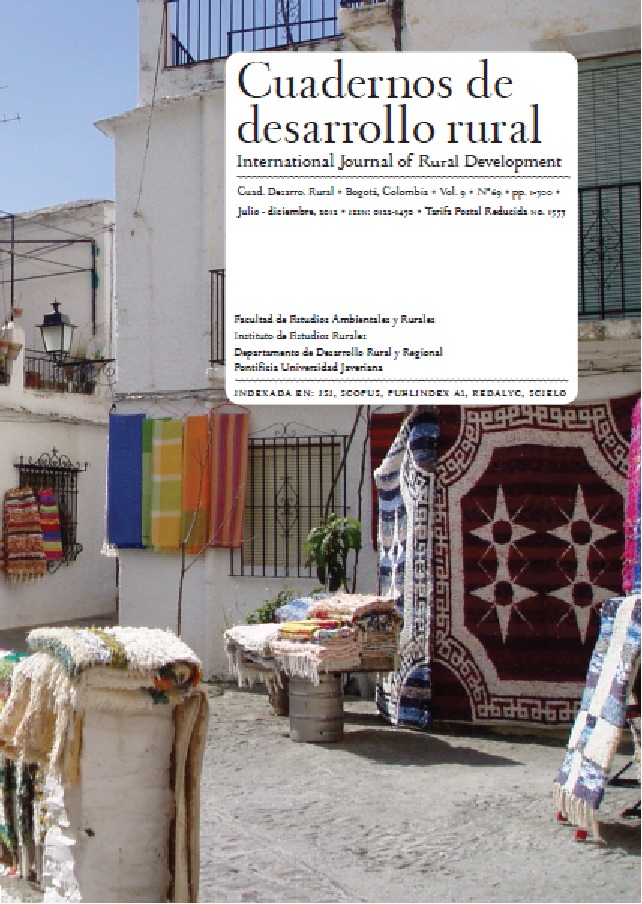Resumo
El objetivo de este artículo consiste en identificar los factores determinantes de la crisis de la agricultura mediterránea en España y las posibles medidas que se pueden tomar desde las cooperativas agrarias. La metodología ha consistido en la aplicación del Método Delphi mediante un cuestionario a expertos durante el año 2011. Del estudio realizado se concluye que las cooperativas agrarias representan una fórmula apropiada para hacer frente a las amenazas y debilidades de este sector. Implementar una estrategia competitiva de diferenciación basada en la calidad es compatible con estrategias de reducción de los costes de producción mediante la concentración de la oferta agraria. Las alianzas estratégicas son apropiadas para poner en marcha estrategias dirigidas a la mejora de la profesionalización de la gestión.Propriedade intelectual:
Instituto de Estudios Rurales, Facultad de Estudios Ambientales y Rurales, Pontificia Universidad Javeriana, Bogotá, Colombia.
O envio de um artigo para a revista Cuadernos de Desarrollo Rural, indica que o(s) autor(es) certifica(m) e aceita(m):
- Que ele não tem sido publicado, nem aceito para publicação em outra revista.
- Que, no caso de sua publicação for aceita, se o artigo ter uma versão previa como working paper (literatura cinza) ou aparecer numa site da internet, deverá ser retirado dele, ficando somente o título, resumo, palavras-chave e hipervinculo à revista.
- Que uma vez publicado em Cuadernos de Desarrollo Rural não será publicado em outra revista.
Ao enviar artigos para avaliação, o(s) autor(es) aceita(m) transferir(em) os direitos de autor à revista Cuadernos de Desarrollo Rural, para os efeitos da sua publicação na versão impressa ou eletrônica, mesmo firmará a licença de uso parcial anexa.
Responsabilidade de conteúdos:
O conteúdo dos artigos publicados por Cuadernos de Desarrollo Rural é de exclusiva responsabilidade do(s) autor(es) e não necessariamente reflete o pensamento do comitê editorial e científico da revista Cuadernos de Desarrollo Rural. Os textos podem se reproduzir total ou parcialmente, mas citando a fonte.
A publicação opera de acordo com a Creative Commons Attribution License (CC), "Alguns direitos reservados". Para as licenças CC, o princípio é o da liberdade criativa. Este sistema não se opõe aos direitos autorais, mas complementa-se com eles. Somos conscientes da importância dos direitos de autor na nossa cultura.
Creative Commons oferece um sistema que automatiza a pesquisa de conteúdos "comuns" ou sob licença CC. Assim, ao licenciar o seu trabalho, o criador estabelece as condições gerais que são digitalmente incorporadas nele, para que um motor de busca possa identificá-las e escolher a mais conveniente.
This work is licensed under a Creative Commons Attribution-NonCommercial-ShareAlike 3.0 Unported License.


